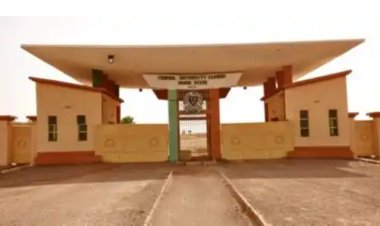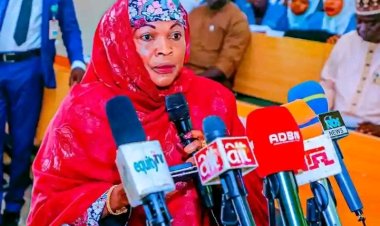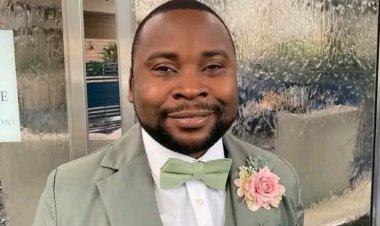First Nigerian Professor of Drama Presents AE-FUNAI 4th Innaugural Lecture
A Professor of Drama and Critical Theory, Department of Theatre Arts, Ameh Dennis Akoh has presented the 4th inaugural lecture of Alex Ekwueme Federal University Ndufu Alike, Ebonyi State.

A Professor of Drama and Critical Theory, Department of Theatre Arts, Ameh Dennis Akoh has presented the 4th inaugural lecture of Alex Ekwueme Federal University Ndufu Alike, Ebonyi State.

Myschoolnews reports the lecture was titled “The Subaltern Can Write: Theory, Criticisms and Power in African Dramatic Literature.”
The auspicious occasion which was held at the Senate Chamber of the University highlighted and celebrated his academic, research and community service achievements and contributions over the years, as the first Professor of Drama and Critical Theory in Nigeria.
speaking at event, the Vice- Chancellor of the University, Prof. Sunday Oge Elom, who was represented by the Deputy Vice- Chancellor, Administration, Prof. Abel Ezeoha, noted that the 4th inaugural Lecture was nostalgic to him because it marked the first since his assumption of office as the Vice- Chancellor of the University.
He stated that it was the dream of every university professor to present his/her inaugural lecture immediately after assuming the prestigious rank of a professor and vowed that the noble academic activity would be sustained, to enable other highly revered professors not only to publicly share their academic and research accomplishments but also to project into the future.
The Vice Chancellor further stressed his commitment to providing the enabling environment and support to all staff to fulfill their academic, research and professional dreams and aspirations.
Earlier, in a welcome address by the Chairman, Inaugural and Public Lectures Committee of the university, Prof. Rosemary Igbo, had described the 4th inaugural lecturer as one whose academic prowess has spanned beyond his chosen career, adding that the purpose of the lecture was not only to celebrate the inaugural lecturer but, to give everyone the opportunity to assimilate the lecture, which spreads across ideology and politics, globalization and feminism.
Prof. AKoh is a consummate academic who started his academic career early in life and concluded with a PhD in Dramatic Theory and Criticism in the year 2016. He has held many positions in the university system, and also received numerous awards for his distinguished service in the academia and other facets of life.
He also has over 50 publications in revered local and international journals, 6 books, 10 chapters in books and 25 journal articles; and also won several research grants and fellowships.
Delivering his lecture titled “The Subaltern Can Write: Theory, Criticism and Power in African Dramatic Literature” Prof. Akoh said the idea of the “subaltern” is traceable to the Italian Marxist critic, Antonio Gramsci who in his prison notes, sought to categorize the subaltern classes as those subordinated by hegemony and excluded from any meaningful roles in a regime of power.
In the depth of his lecture, he pointed out that Literature is ideological, which makes ideology a moving spirit in Africa.
He maintained that the ideological debate in literature, especially in Africa brought about African Literature, which became apparent when some African countries began to attain political independence in 1960s.
In concluding, Prof. Akoh recommended that the department of Theatre Arts should work in collaboration with the National Universities Commission (NUC) to develop more industry-oriented curriculum that will adequately equip university graduates for gainful participation in the national economy, noting that AE-FUNAI is well positioned in this direction.
He also called on the Federal ministry of Education to ensure that Drama is taught as a distinct subject in the Senior Secondary Schools.
Professor Akoh further requested that endowment fund for the arts in Nigeria, be vigorously pursued and established as a matter of national need, as n o nation develops with a half-hearted attention to its Arts and Culture.

 Emmanuel Eze
Emmanuel Eze 



